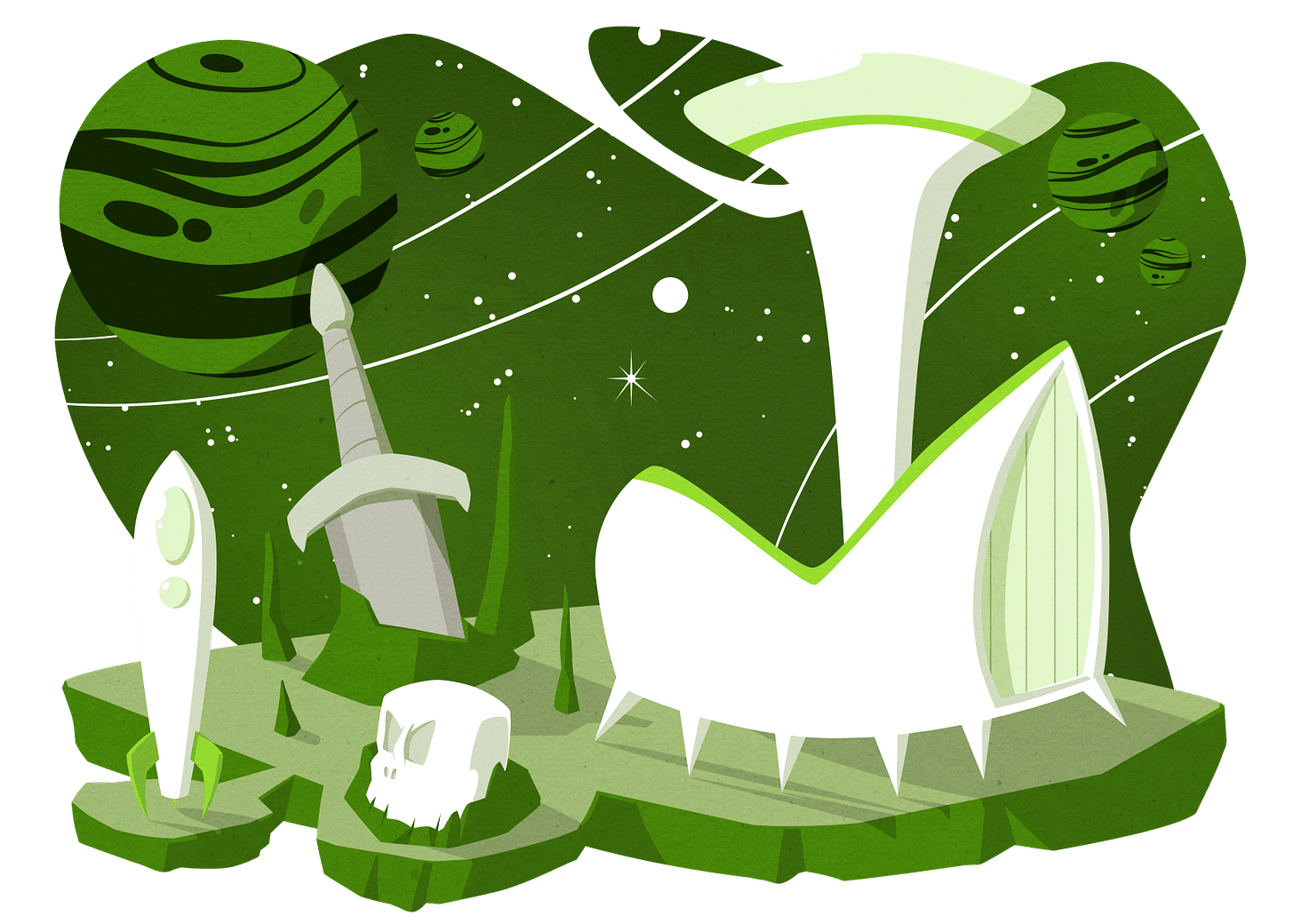Dear Reader, Issue 4, Volume 2
One year on Substack and The Great Substack Story Challenge
Dear Reader:
I have been on Substack for more than one year according to the message on my welcome page. I have no way to verify the exact day and time, but I’m sure I could track it down if I tried hard enough. My first post, however, was not published for the masses until March 9, 2022, making my platform birthday suspiciously ambiguous. I kind of like it that way. Alas, the occasion requires deeper rumination on the state of my being as a writer.
If you haven’t been following me the entire time, I used to post non-fiction as well, which I enjoyed, but it prevented me from improving my fiction chops (or at least delayed my progress). As I read through my older stories, I can confidently say I have improved, and it demonstrates that consistent practice helps — as does getting honest feedback. I still write non-fiction when lightning strikes, but it’s sporadic, and I don’t post it here on Substack.
As I look ahead to 2023 and beyond, it strikes me that our world and as a result, the world of fiction, will continue to change dramatically. The essence of that has little to do with disrupters like Substack or the advent of intuitive language AI models like ChatGPT. I’m talking about our inability to consume complex, long-form fiction due to an increasing attention deficit. Sitting and reading a book is becoming a past time relic.
Anecdotally, I don’t think this has to do with a decreasing interest in the act of reading itself. It’s about competing interests that unconsciously reduce our ability to sit and enjoy a book. The number of entertainment options available suck up our time and are training the next generation to primarily consume high intensity, bite-sized bits of information. Books are an hours long seven-course meal compared to the quick constant stream of carnival food snacks.
So how do we reverse course, if at all possible? One option is to make books shorter and more readily consumable. I think this is a poor strategy. A story should be told in whatever length or fashion suits it. Another option is to amplify the energy in every page, leaving each chapter as a cliffhanger, endlessly leading the reader on an adventure. While this could be interpreted as “tell more interesting stories”, it’s actually a deception that leaves readers unsatisfied.
No, we can’t really change how books are consumed, or their nature, even when the author’s voice or genre changes. What I think needs to happen is that the other options need to run their course, all the while we writers continue to write. Games, social media, video shorts, etc., are newer novelties on the timeline of entertainment. They have yet to reach a saturation point, unlike the written word. It may take a couple more decades to happen, but it will.
When I think ahead to the near term, that is what is on my mind. I’m constantly competing with a barrage of distractions. That gives my job as a writer a heightened sense of purpose, and it requires that I focus on stories that profoundly affect their readers. Avenues toward exposing those stories to a larger audience will always be secondary because focusing on the means to publication is riddled with pitfalls.
I used to think writing should also include a series of end games, like being published in traditional speculative outlets. I still have a strong desire for this to happen, but it’s not my primary driving motivation to write. It’s like banking on winning the lottery in order to feed and clothe my family. In some sense, I wonder if it’s detrimental to my writing to even consider it. I’ll let you know when 2024 arrives.
The Great Substack Story Challenge
On Wednesday, February 22, I will be posting a short story that is a part of The Great Substack Story Challenge Part 2. A group of 10 writers submitted theme suggestions and chose one as the basis for a serialized story. One of those writers will post their contribution every week. What’s interesting about this challenge’s theme is that we’re each writing about the same event, but from a different point of view. I get to choose a character, how they fit into the central narrative and how they enrich the plot.
You don’t necessarily need to read all of the previous short stories to understand my contribution, but it adds a fun dynamic to the entire puzzle. After you’ve read mine (we all know you want to), be sure to go back and read, like and comment on the other stories. You won’t regret the adventure.
Happy Reading,
Brian Reindel





Love this. The era we live in makes it impossible to know when or how the skill of longform storytelling will be most useful, but it would be a tragedy if no one had the skill at all. So it's incumbent upon the people who have both the desire and willingness to cultivate it to do so, with no expectation of compensation or recognition, other than the quiet, private satisfaction of developing a skill that, in some ineffable way, matters to the universe.
I have read all of your short stories, Brian, and they're all Excellent! I even bought your book and have passed it along to seven people who have praised your extraordinary writing.